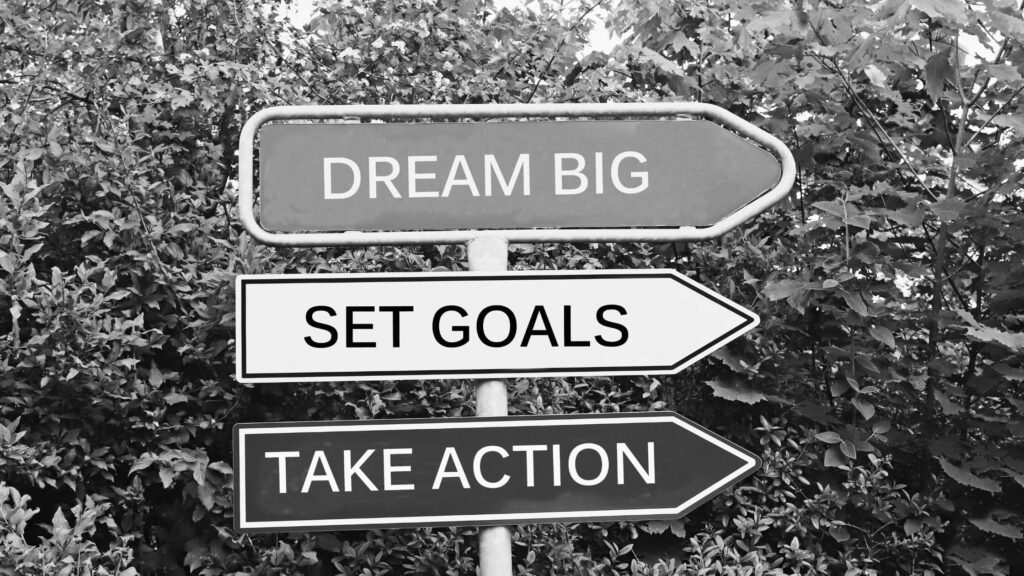As a mom of seven and an entrepreneur, I’ve learned firsthand that self-discipline isn’t just a nice-to-have—it’s an absolute necessity. It’s the common thread that weaves through every aspect of my life, from managing hectic family schedules to making strategic business decisions. This invisible backbone of self-discipline helps me stay organized, make better choices, and ultimately leads me toward achieving my goals.
So it’s no surprise that I often get asked how to have self discipline. That’s why I’m thrilled to share some of the healthy habits I’ve adopted along my own journey of building self discipline. These are tried-and-true practices that have been transformative, both in my personal life and my professional endeavors.
Understanding Self-Discipline
Self-discipline is a comprehensive mindset, a framework that allows you to navigate life’s complexities with a certain level of ease. Imagine it as a sort of internal compass, guiding you to make decisions that are in harmony with your core values and long-term objectives.
This skill set isn’t just about self control and personal restraint; it’s about channeling your energy in a focused and purposeful way. In my role as an entrepreneur, self-discipline helps me to sift through opportunities and pitfalls, enabling me to steer my company in the direction that aligns with my overarching goals. Similarly, in my family life, it’s what helps us pack up and set out on an adventure with enthusiasm, despite the logistical challenges that come with having a big family. For me, it’s the key that unlocks the door to a balanced, fulfilling life.
How to Have Self-Discipline: 7 Essential Practices
 Here are seven actionable habits that can help you demonstrate regular self-discipline. These are strategies I’ve personally found valuable, both at home and at work. So, if you’re aiming to climb your own metaphorical—or literal—mountain, these habits will serve as your roadmap.
Here are seven actionable habits that can help you demonstrate regular self-discipline. These are strategies I’ve personally found valuable, both at home and at work. So, if you’re aiming to climb your own metaphorical—or literal—mountain, these habits will serve as your roadmap.
1. Set Clear Goals
Setting clear goals is like your north star in the journey to develop self-discipline. It’s more than just scribbling down some objectives; it’s about creating a comprehensive plan for your life. Think of it as your own personal GPS, guiding you through the decisions and actions that will help you reach your destination.
Never underestimate the power of small goals. These are your mile markers on the road to larger aspirations. Small goals keep you focused and provide that extra push when you’re feeling bogged down. Achieving these smaller targets not only provides a sense of accomplishment but also acts as a motivational boost towards tackling bigger challenges.
Practice breaking down your long-term goals into manageable parts. If your goal is to scale a mountain, start with smaller trails. If you’re eyeing a business expansion, begin with research and initial planning. These baby steps make the process less daunting and give you actionable points to focus on.
But what if things don’t go as planned? Always have a backup plan. This isn’t admitting defeat; it’s being prepared for life’s uncertainties. A backup plan keeps you on track and assures you that a setback isn’t the end of the world, but merely a detour.
2. Learn to Prioritize and Manage Your Time
Time management is a cornerstone of self-discipline. But let’s clarify what that really means. Managing your time effectively isn’t just a logistical exercise; it’s a skill that allows you to build discipline by focusing on what truly matters. The ability to prioritize tasks goes hand-in-hand with better control over your life’s trajectory, paving the way for success in any endeavor.
So, how can you better prioritize? Well, for starters, you can categorize your tasks into urgent, important, and optional. Urgent tasks are the fire drills—they need to be done now. Important tasks contribute to your long-term goals and mission. Optional tasks are nice to do but aren’t urgent or particularly important. By labeling your tasks this way, you bring your daily actions in line with your bigger goals, creating a powerful feedback loop that helps you stay motivated.
Another strategy to boost your time management is to use tools like time-blocking, which involves dedicating chunks of time to specific tasks. It’s a great technique to build discipline, prevent procrastination, and make your work sessions more productive.
When you integrate effective time management into your daily routine you’re actively shaping your life around what you deem most valuable. This exercise in decision-making helps build discipline and reinforces your intrinsic motivation, which are both key ingredients for achieving lasting success.
3. Create Daily Routines
Don’t sleep on the power of a solid daily routine; it’s your blueprint for a disciplined life. Consistency is key when it comes to self-discipline, and one of the best self-discipline examples is adhering to a routine that incorporates good habits. Think of a daily routine as the scaffolding that supports your best self, letting you focus on important tasks rather than getting bogged down in decision fatigue.
In my own experience, a well-thought-out daily routine can provide stability amid chaos. It not only helps establish good habits but also quashes unhealthy ones that can be self-sabotaging. Try starting your morning routine with a quick meditation followed by a review of the day’s agenda. This sets a focused, intentional tone for the day, allowing you to tackle tasks with clarity and precision.
Want to see how successful people build self-discipline? Look at their daily routines. From Bill Gates’ time-blocking technique to Oprah’s gratitude journaling, disciplined people often have set activities that kick off their days.
These routines can range from making your bed first thing in the morning—a small win that sets a positive tone for the day—to designating specific blocks of time for emails, project work, and even family time. The aim is to prioritize important tasks and allocate time accordingly, making you more effective and allowing you to accomplish more in your day.
Start building a daily routine that aligns with your goals and watch how quickly you evolve into a more disciplined person. After all, mastering self-discipline starts with mastering your day.
4. Build Willpower
Think of willpower as the internal battery that fuels your ability to make better choices. To build this mental muscle, you have to act, not just think. Just as I make it a practice to prep for hikes or climbs, making good choices in one area of your life can create a positive ripple effect in others. If you want to be more punctual, setting an alarm and actually getting up when it rings is a simple act but demonstrates the cultivation of willpower.
Developing good habits, like sticking to a to-do list or setting boundaries at work, trains your willpower. Celebrate your little victories because every time you resist temptation or break a bad habit, you’re strengthening your willpower reservoir. Over time, the collective impact of these small acts helps you achieve self-discipline. Consistent behavior in this direction creates a cycle of success where your growing willpower helps you accomplish more challenging goals.
5. Focus on Your Mental Health and Practice Self-Care
No matter how strong your willpower, you can’t overlook the role of mental health in achieving self-discipline. Just as you wouldn’t embark on a strenuous hike without the proper gear and preparation, your mental well-being needs its own form of upkeep. This isn’t just a good habit; it’s a necessity.
One important form of self-care is being able to appropriately manage the stressors that come with daily life. Stress management isn’t just for your “feel good” moments; it’s for every moment. Mindfulness exercises, regular physical activity, and adequate sleep are your mental health’s best allies. Make these practices non-negotiable in your daily routine. By staying mentally balanced, you are setting up a strong foundation upon which your willpower and self-discipline can flourish.
6. Avoid Temptations and Distractions
Avoiding temptations and distractions is key to building discipline. One effective way to resist unhealthy habits is to proactively remove temptations from your environment. For instance, if you’re trying to eat healthier and lose weight, don’t stock your pantry with junk food. If social media is your Achilles’ heel, consider app blockers or setting aside specific “scroll times.” Basically, you’re putting systems in place to avoid self sabotaging behaviors that won’t serve you in the long run.
Delayed gratification is another aspect of avoiding temptations. For example, you can delay your Netflix binge until you’ve hit a small milestone on a project you’re working on. Choosing to delay gratification creates fewer distractions and helps you focus on what’s really important. Healthy habits like these don’t only benefit your own life; they ripple out to improve every area you touch, from work to family activities.
Remember, the goal is not to make your life a fun-free zone but to be deliberate about what you let in. Whether you’re aiming for a personal or professional accomplishment, minimizing distractions will put you on a faster track to achieving your goals.
7. Focus on Persistence and Consistency
Finally, achieving self-discipline isn’t a one-time event; it’s a long-term commitment. It’s about making steady progress, finding the motivation to stick to your plans, and not giving up when things get tough. In my experience, be it business or outdoor adventures, consistency and persistence are your most reliable allies. Remember, even the most challenging mountains are conquered one step at a time.
Learn from Setbacks
We all trip up sometimes. Whether it’s choosing a trail that turned out to be a dead-end or making a mistake in a business venture, setbacks are the universe’s way of saying, “Here’s a lesson for you.” The critical thing here is not to let setbacks break you, but to use them as stepping stones to build self-discipline. Self-discipline means understanding what went wrong, why it happened, and how you can avoid making the same mistake in the future. It’s all about demonstrating regular self-discipline to prevent self-sabotaging behaviors. By analyzing your setbacks, you gain insights that make you stronger and more resilient.
The Importance of Support and Accountability Partners
 Let’s be honest, the journey to becoming self-disciplined can be a lonely one, especially if big changes are outside your comfort zone. That’s why having a solid support system can be a game-changer. My family is my anchor; their support keeps me focused and accountable in everything I do. Surround yourself with people who help you practice self-control, hold you accountable, and positively impact your well-being and physical health. And don’t take my word for it; many 7-figure earners will tell you that this social support strengthens your resolve, making the path to self-discipline less daunting.
Let’s be honest, the journey to becoming self-disciplined can be a lonely one, especially if big changes are outside your comfort zone. That’s why having a solid support system can be a game-changer. My family is my anchor; their support keeps me focused and accountable in everything I do. Surround yourself with people who help you practice self-control, hold you accountable, and positively impact your well-being and physical health. And don’t take my word for it; many 7-figure earners will tell you that this social support strengthens your resolve, making the path to self-discipline less daunting.
Track Progress and Celebrate Achievements As You Practice Self Discipline
The path to self-discipline is an ongoing journey, not a destination. It’s essential to track your progress, create milestones, and celebrate success when it comes along. Whether it’s mastering a new trail or achieving a business milestone, these achievements validate your efforts. Take time to appreciate each little milestone you achieve, from breaking a bad habit to successfully implementing new habits. These celebrations serve as your motivation to continue on this path, always striving for improvement in every aspect of your life.
Embrace The Journey to Self Discipline
Becoming a self-disciplined person isn’t something that happens overnight. It’s an ongoing process that requires consistent actions and commitment. The many benefits of developing self-discipline range from boosting self-confidence to enabling you to achieve goals you once thought were beyond reach.
Every mountain I’ve climbed or business challenge I’ve tackled didn’t happen by accident. It came from a clear vision and relentless discipline in daily life. When you’re self-disciplined, staying motivated becomes a lot easier, because you’re driven by a deeper sense of purpose. This discipline serves as your compass, guiding you through the thick and thin of life, helping you maintain focus on your long-term vision.
So whether you’re facing challenges in your personal life or your professional one, remember that building self-discipline is a marathon, not a sprint. Each step you take, each habit you form, and each goal you achieve brings you one step closer to becoming the person you aspire to be. Stick with it. Keep refining, keep learning, and most importantly, keep moving forward.





Related Posts
7 Reasons Why Professional Development Is Important
How to Create The Ultimate Self-Care Plan
7 Secrets to Becoming a Better Employee